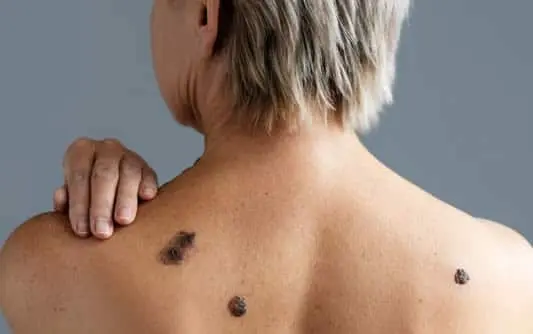Understanding the ABCDEs of melanoma is crucial for early detection and treatment. In addition to recognizing these key characteristics, it’s important to be aware of other factors that can increase your risk of developing melanoma.
-
UV Exposure: Prolonged exposure to ultraviolet (UV) radiation from the sun or tanning beds is a significant risk factor for melanoma. Protect your skin by wearing sunscreen with a high SPF, seeking shade during peak sun hours, and wearing protective clothing and sunglasses.
-
Personal History: Individuals with a personal history of melanoma or other types of skin cancer are at a higher risk of developing melanoma in the future. Be vigilant about monitoring your skin and attending regular check-ups with your dermatologist in Simi Valley.
-
Family History: A family history of melanoma can also increase your risk of developing the disease. If you have close relatives who have been diagnosed with melanoma, discuss your risk factors with your healthcare provider and consider more frequent skin checks.
-
Fair Skin: People with fair skin, light hair, and light-colored eyes are more susceptible to the damaging effects of UV radiation and have an increased risk of developing melanoma. Take extra precautions to protect your skin and monitor it for any changes.
-
Immunosuppression: Individuals with weakened immune systems, either due to medical conditions or immunosuppressive medications, have an elevated risk of developing melanoma. Work closely with your healthcare team to manage your condition and monitor your skin health.
-
Age: While melanoma can occur at any age, it is more commonly diagnosed in older adults. However, rates of melanoma in younger individuals, particularly women, have been increasing in recent years. Regardless of age, everyone should prioritize regular skin checks and sun protection practices.
By incorporating these additional considerations into your skin health routine, you can further reduce your risk of melanoma and other types of skin cancer. Remember, early detection and prevention are key to maintaining healthy skin and overall well-being. If you have any concerns or notice changes in your skin, don’t hesitate to seek medical advice promptly. Your proactive approach to skin health could save your life.


